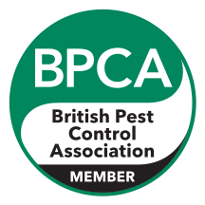Welcome to Pest Control Danbury We can help with all your Mice Control Problems for both domestic and Mice customers.
Pest Control Danbury is committed to providing an efficient and dependable Mice Control and prevention service in Danbury. We aim to provide a safe working environment for our customers whilst complying with legislative and audit requirements.
We have gained many customers through recommendations over the years, both from the Mice and domestic market in Danbury for Mice Control.
St George’s Pest Control Ltd is a member of the BPCA (British Pest Control Association) and has several accreditations including CHAS, Construction line, Safe Contractor, CSCS and have been approved by the Essex County Council – Buy with Confidence scheme.
For all your Mice Control Problems and for a Pest Control Quote in Danbury please contact us on 01708 715070.
About Mice
Mice breed all year round and a mouse infestation can grow rapidly. Each year a female mouse can have 5 to 10 litters which may produce up to 16 young per litter.
Mostly active at night time, the mouse will travel through loft spaces and wall cavities and through gaps as small as a pen nib.
The average mouse deposits 70 droppings in 24 hours and urinates frequently to mark its territory, contaminating more food products than it consumes and spreading diseases.
Mice have a compulsive need to gnaw in order to keep their incisor teeth worn down to a constant length. They can cause considerable damage to electric cables, water and gas pipes, packaging and woodwork.
Mice are erratic, sporadic feeders, nibbling at many sources of food rather than taking repeated meals from any one item. They do not need free water to drink as they normally obtain sufficient moisture from their food.
Treatment:
To clear a mouse infestation inside your premises we would install plastic bait boxes containing rodenticide baits in areas such as lofts, kitchen cupboards, airing cupboards, store rooms and garages. Weekly follow up visits are provided until the mouse infestation has been cleared.
Lockable metal bait boxes containing rodenticide baits would be installed around the building and surrounding areas for external mouse problems and again followed up weekly until the problem has been cleared.
Proofing recommendations are provided to reduce risk of further rodent activity






